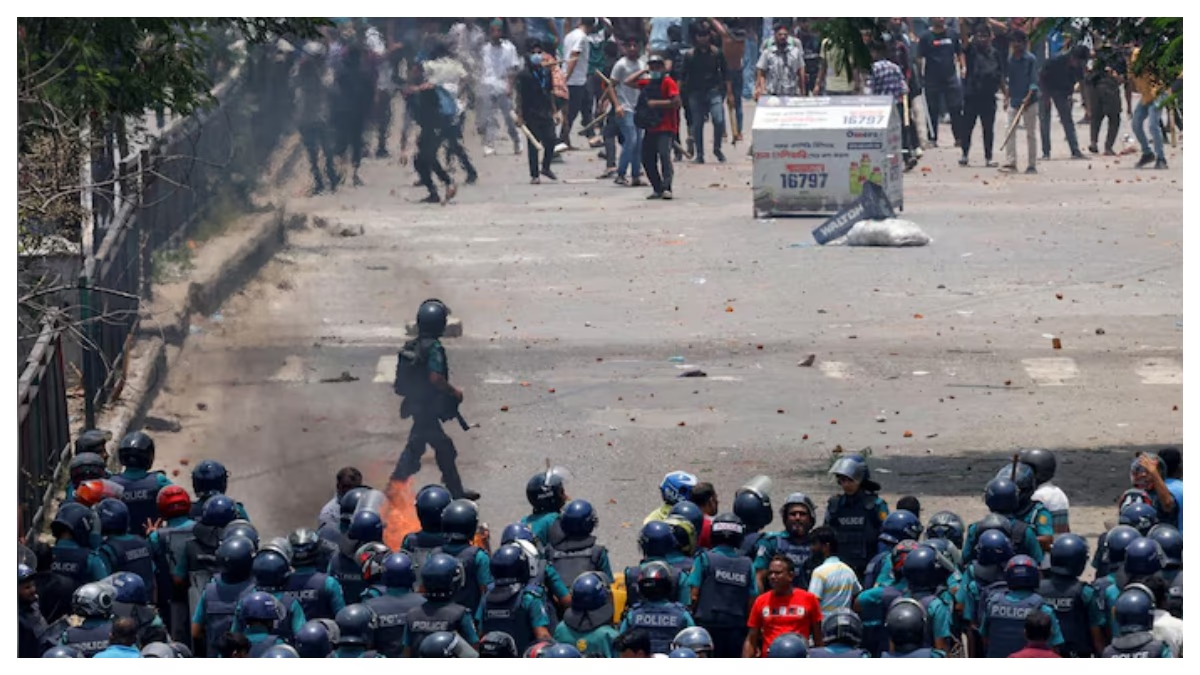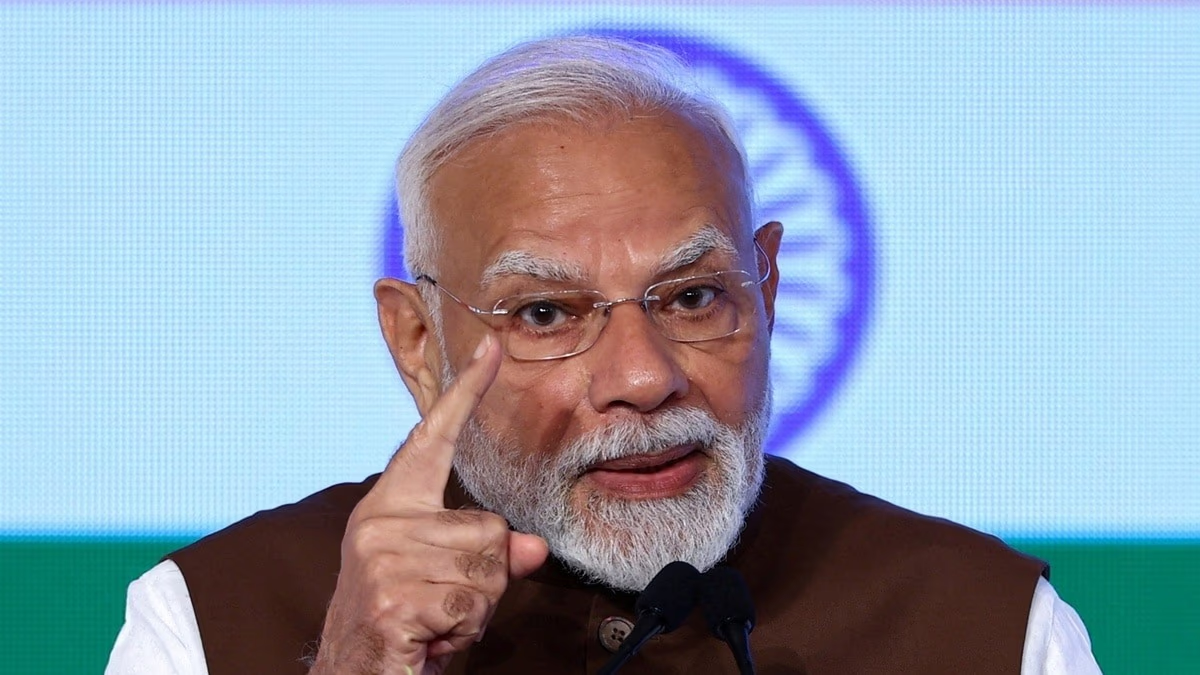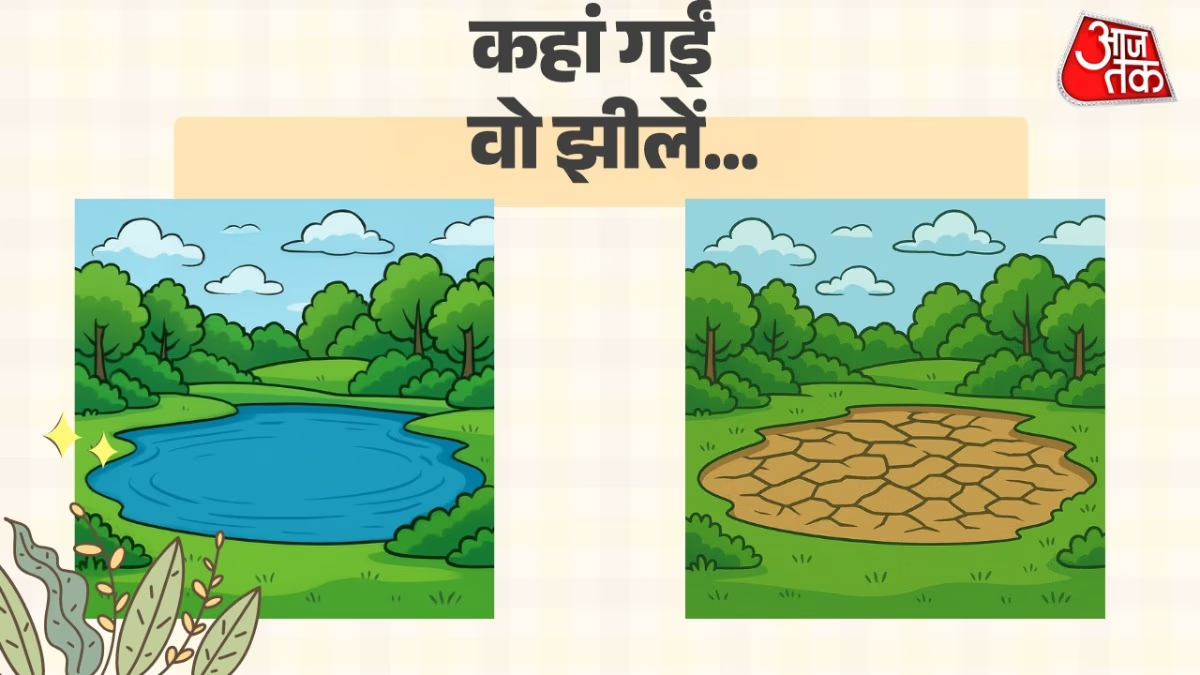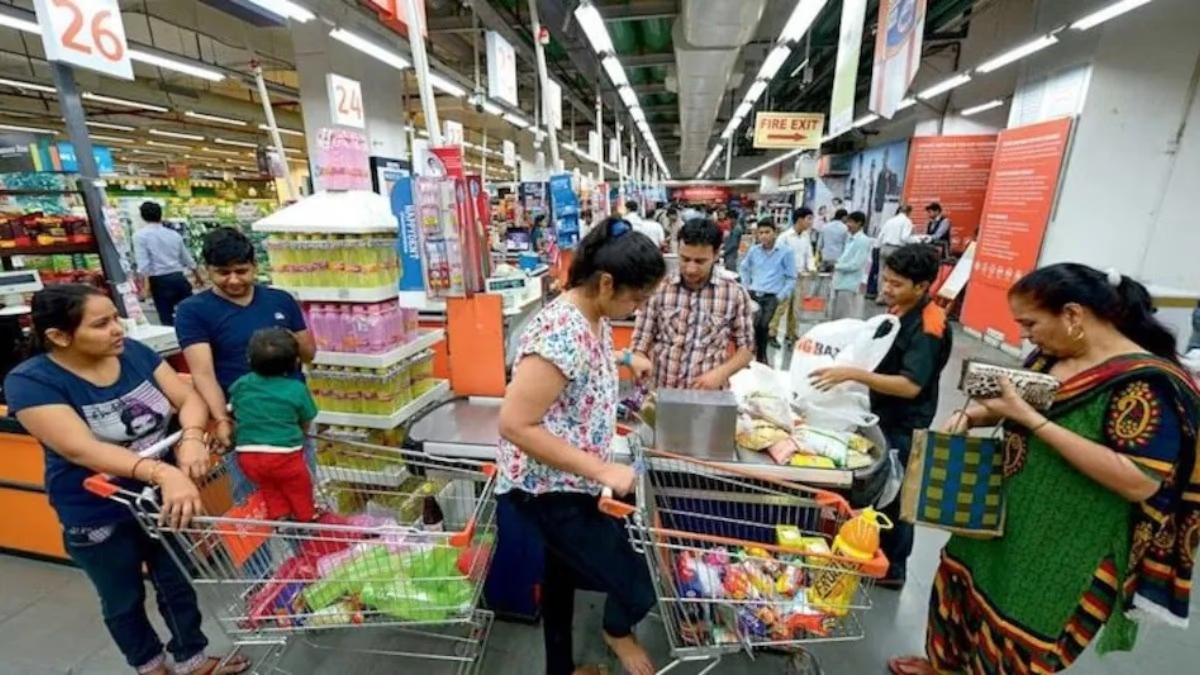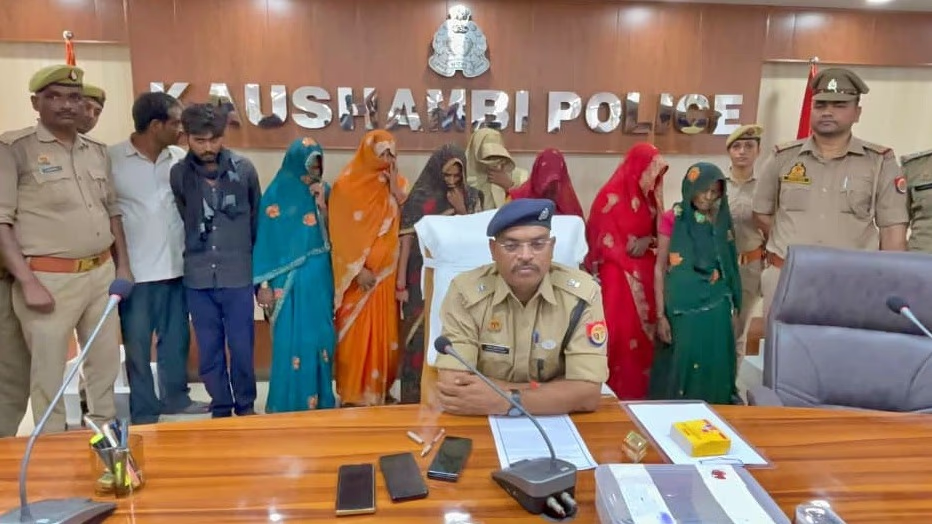Bangladesh's top court is set to deliver its verdict on the contentious quota system that has sparked nationwide protests led by university students. The Supreme Court is to decide whether to abolish the civil service job quota. Ahead of this, a nationwide curfew has been imposed, and the government has issued 'shoot at sight' orders for rioters. The protest, which began on university campuses, has now spread throughout the country. Prime Minister Sheikh Hasina further inflamed tensions by comparing protesters to those who had supported Pakistan during the 1971 Liberation War.
During a press conference at her residence on July 14, when questioned about the student protests, the Prime Minister responded, 'If the grandchildren of freedom fighters are denied (quota) benefits, will the grandchildren of Razakars be given them?' Following this statement, protestors became more aggressive, chanting slogans such as 'Who are you? Who am I? Razakar, Razakar!'
It should be noted that descendants of freedom fighters from the 1971 Liberation War in Bangladesh are allotted 30 percent reservation in government jobs. In 2018, violent student protests erupted in Bangladesh against this quota system. The Hasina government decided to suspend the quota system at the time. The decision was challenged in the High Court by the freedom fighters' descendants. Last month, the High Court overturned the Hasina government's decision and reinstated the quota system.
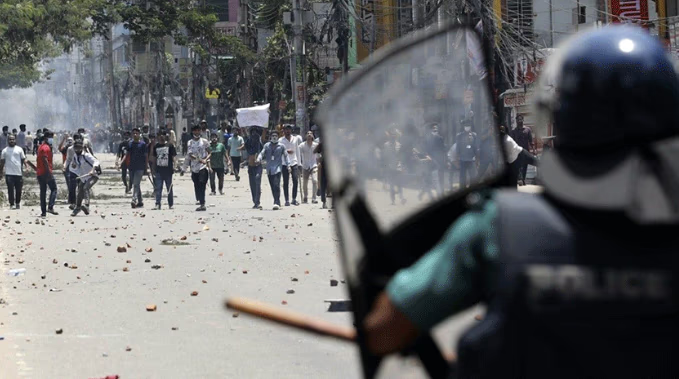
Source: aajtak
133 Dead Amid Protests in Bangladesh
Following the court's decision, violent protests erupted across Bangladesh. Protesters damaged public properties and set buses and trains on fire. The situation spiraled so out of control that the Hasina government had to deploy the army on the streets. Clashes occurred between protesters and security forces in many places. So far, 133 people have died, and over 3000 have been injured, with unrest still ongoing. This has severely impacted rail services and the public transport system.
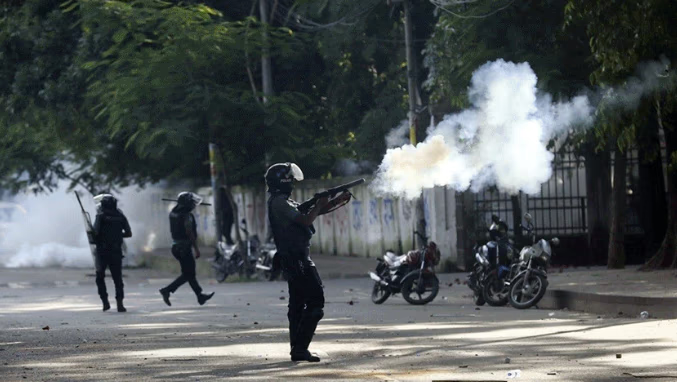
Source: aajtak
Army Patrolling Streets of Dhaka
To curb the rising unrest, a strict curfew has been imposed throughout Bangladesh, with soldiers patrolling the streets of the capital Dhaka and other cities. On Saturday afternoon, the curfew was briefly lifted to allow people to attend to essential needs. The ruling Awami League Party's General Secretary, Obaidul Quader, informed AFP news agency that police officers have been authorized to shoot at those breaching the curfew. The violent protests have forced the Hasina-led government to close all public and private educational institutions indefinitely.
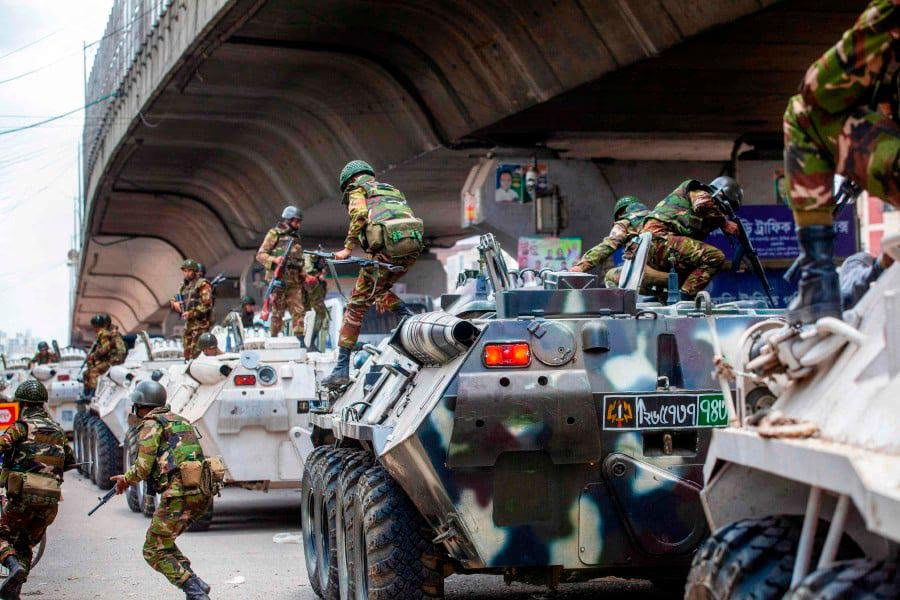
Source: aajtak
About 1000 Indian Students Return Home
Approximately 1000 Indian students studying at various institutions in Bangladesh have returned home. According to the Ministry of External Affairs, there are about 15,000 Indians in Bangladesh. The Indian Embassy has urged Indians in Bangladesh to contact them for any assistance and has provided a 24x7 helpline number. The US State Department has advised Americans against traveling to Bangladesh and has decided to evacuate some of its diplomats and their families from Dhaka due to the civil unrest.
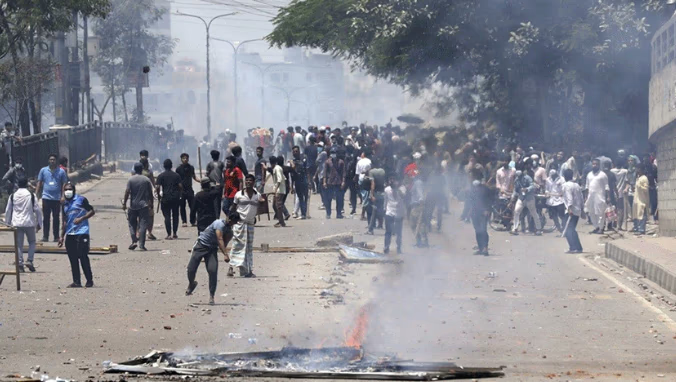
Source: aajtak
Adding to the chaos, the government has imposed restrictions on internet and communication services. What began as a protest against the quota system has evolved into a broader movement against Sheikh Hasina's government, which has been in power since 2009. This is the most extensive violent movement Bangladesh has seen in over a decade. Prime Minister Sheikh Hasina has defended the quota system, stating that freedom fighters and their descendants deserve the highest honor for their contributions to the Liberation War, regardless of their political affiliations.
The History of Razakars
Dr. Muntasir Mamoon, head of the Bangabandhu Chair (named after Bangladesh's founding leader Sheikh Mujibur Rahman) at Chittagong University, explained, 'The term actually originates from 'Razakar,' which is linked to Hyderabad (India). They were essentially volunteer soldiers fighting against the Republic of India on behalf of the Hyderabad State. In Bangladesh, the term 'Razakar' carries a derogatory connotation and is associated with the atrocities committed during the Liberation War of 1971.'
He added that during what was then East Pakistan (now Bangladesh), the Pakistani armed forces created three militia groups—Razakar, Al-Badr, and Al-Shams—to crush the independence movement, target freedom fighters, and terrorize civilians. With the support of the Pakistani armed forces, these militias committed massacres against supporters of the Bangladesh independence movement, raped women and girls, tortured, and killed them. In Bangladesh, 'Razakar' is infamously used in the same context as 'Jai Chand' in India, meaning those who betray their own people and commit atrocities against them.
